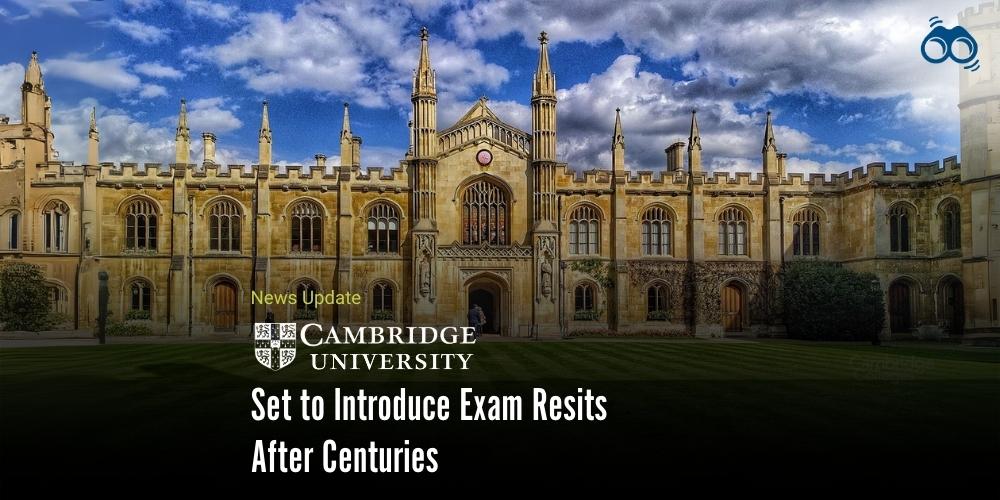Cambridge Debates Introducing Exam Resits Amid Changing Assessment Demands
Exam Resits at Cambridge: Balancing Tradition with Student Needs
The University of Cambridge, known for its long history of academic excellence, is now rethinking its approach to exams. To better support students facing unexpected difficulties, the university is considering changes to its traditional assessment policies. At the heart of this proposal is the introduction of exam resits, a move that would represent the first instance in Cambridge’s long history in which students might be afforded a second opportunity to demonstrate their proficiency. The new framework would permit final-year students to resit examinations if more than one-quarter of their assessments are adversely affected by factors such as illness or other serious circumstances. In some cases, a spoken assessment could serve as an alternative method of evaluation.
Founded in 1209, Cambridge has historically maintained a conservative stance towards examination resits, permitting them only for professional degrees such as veterinary science or medicine. However, in light of mounting pressure from the student complaints watchdog and calls for modernisation, the institution is increasingly compelled to reconsider its longstanding policies.
Despite the well-intentioned nature of these proposals, there is considerable debate as to whether such measures might undermine the university’s esteemed academic reputation. Critics argue that allowing resits, even in exceptional circumstances, risks compromising the rigorous standards for which Cambridge is renowned, a concern that has been echoed by members of the exam taskforce. The discussion has grown even more complex following a consultation conducted last year across twenty-three Cambridge colleges and forty-two departments, which reportedly found that 60% of those consulted opposed the introduction of exam resits. Opposition centred on fears that the policy might be exploited, a phenomenon that some believe has occurred at other institutions.
Recent internal council papers indicate that the university is now seriously considering the change, with a vote anticipated next month. Under pressure from regulatory bodies, Cambridge may soon offer reassessment options for students who can demonstrate that illness has resulted in underperformance or absence in over twenty-five per cent of their final examinations. Additionally, individual departments would be granted the discretion to determine the most appropriate reassessment format, whether by means of an oral examination, an essay portfolio, or a standard written resit.
Further reports suggest that students who fail less than a quarter of their final examinations due to verified illness or other serious circumstances might have those papers excluded from their overall grade. The proposed system would also introduce a brief period after examinations during which students could apply for recognition of extenuating circumstances, provided they submit supporting evidence such as a GP note. Currently, students who miss a significant proportion of their final examinations under exceptional reasons are granted an honours classification accompanied by an explanatory note, a status that many consider difficult to communicate to potential employers.
A 2023 report by the Office of the Independent Adjudicator urged Cambridge to treat resits as an early option rather than a measure of last resort. Although an earlier internal consultation on reassessment met with concerns regarding increased staff workload and potential deterioration in assessment quality, the issue remains the subject of active review. Cambridge has consistently asserted that the proposed changes will not compromise the academic integrity that the university is renowned for. The general board has maintained that the reforms offer equitable solutions for students while steadfastly upholding the high standards of Cambridge degrees.
These discussions are unfolding alongside a broader review of Cambridge’s historic tripos rankings system, first introduced in 1748, as part of a concerted effort to address concerns raised by a taskforce about an overbearing culture of overwork adverse to student well-being. In this context, the pro-vice chancellor for education contended that the reforms would help alleviate self-imposed competitive pressures without diminishing academic excellence. In contrast, prominent academics including Professor Douglas Hedley of Clare College and David Abulafia, emeritus professor at Gonville and Caius College, have expressed apprehension, warning that such changes could inadvertently weaken the traditional competitive spirit integral to Cambridge’s mission.
Amid these divergent perspectives, student groups have largely welcomed the proposed exam resits. Sarah Anderson, the undergraduate president of the student union, has voiced strong support for the reforms, arguing that they will enable students to graduate with degrees that genuinely reflect their efforts. Anderson further emphasised that resits are standard practice across other UK universities and underscored the particular benefit for disabled students, criticising Cambridge’s delayed adoption of such measures. A university spokesperson confirmed that the reconsideration of the exam resit policy was prompted by a request from the Office of the Independent Adjudicator. The spokesperson clarified that resits would be granted solely in cases of verified illness or bereavement and noted that internal discussions are ongoing, with further announcements expected once the consultation process concludes.As Cambridge weighs tradition against transformation, the outcome of its upcoming vote may redefine the balance between academic rigour and compassionate reform.
Editor's Note:
Cambridge University is looking at a plan to allow exam resits. This idea has sparked debate both inside and outside the university, which is famous for its long academic tradition. Critics worry that giving students a second chance could lower the standards that many value. However, supporters say that this change would offer important help to students facing serious difficulties.
Skoobuzz believes that while any policy change must be carefully thought through, Cambridge’s willingness to explore new ideas could be a positive step. This move may offer greater support for students without harming the high academic standards the university is known for. This discussion shows the common challenge of balancing compassionate teaching practices with the need for rigorous education.














0 Comments (Please Login To Continue)